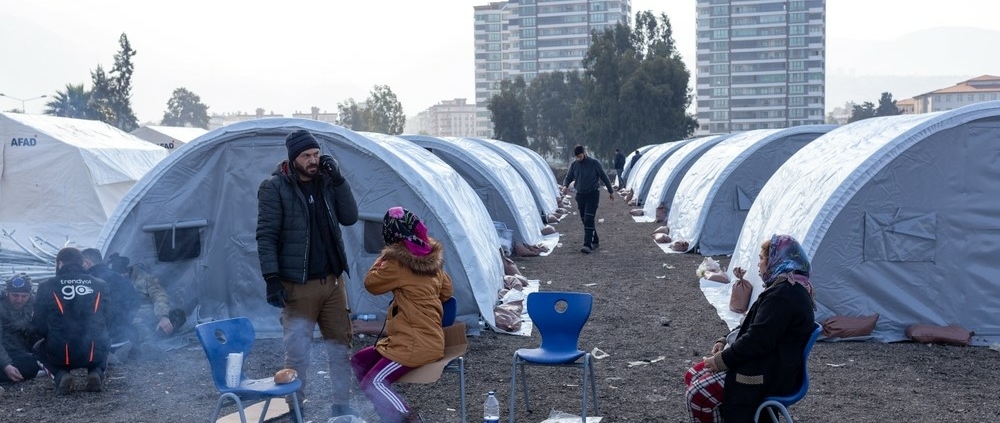Should We Help Earthquake Victims, or Are They Sinners?
Answered by Ustadha Shazia Ahmad
Question
What is the Islamic point of view on earthquakes? What should be our attitude towards the populations who have suffered earthquakes? Should we blame the people who got hurt or help them?
Some say that we should not help those who have suffered in natural disasters because they suffer because of their sins. Is this a correct opinion?
Answer
Thank you for your question. May Allah reward you for asking his important question. I pray that you help change the mind of the people who are saying this to you and encourage them to help those who suffer.
Shaykh Jamir says the following,
Divine Punishment vs. Natural Disasters
When natural disasters happen, it is not possible to know the reason behind their occurrence. Repeated sinners can be liable to punishment through afflictions, for Allah Most High tells us, “Whatever misfortune happens to you is because on the things your hands have wrought (…).” [Quran, 42:30]
While at the same time, the most pious servants are often afflicted with misfortunes also. When asked which people are tested more severely, The Prophet (peace and blessings be upon him) answered, “They are the Prophets, then the next best, then the next best.” [Tirmidhi].
Generally, we may look to the state of the person or community to get an idea of what is happening. The continual disobedience, heedlessness, and transgression of an individual or a people, or alternatively, the piety, god-fearing states, and good works of an individual or people, can be broad indicators of why certain calamities occur.
However, and most importantly, unless stated in the Quran, hadith, or verified by the census of Muslim scholars, we should not pass any verdict or claim that a specific event is a Divine Punishment or that specific people are being punished, for only Allah the Exalted knows the true nature of such matters. At worst, it is talking about what one does not have any knowledge of, and at best, it is passing judgment and being insensitive to the suffering of others.
Instead, Muslims should provide both faces and places of solace during times of calamity. In a world that is increasingly cold and filled with anger and hate, it is imperative that we, the Muslims, become the emblems of human empathy, care, and guidance, regardless of the reasons why things happen.
Therefore, the only beneficial things we can do, and indeed, the only factors we can be certain of during times of catastrophes is:
- Know that they occur only through the permission of God, as Allah Most High tells us, “Misfortunes can only happen with God’s permission.” [Quran, 64:11]
- Understand that adversities, punishment or not, natural disasters or man-made, are all a test from Allah and a chance to turn to Him and set things right. Depending on the scale and intensity, natural disasters that affect many people are a test and a lesson that requires groups, whole nations, or perhaps the whole of mankind to take heed and reflect.
- Come to the aid of those who are suffering, if possible. The very least being making supplication for them, and this is possible for everyone. Tests or punishments are not just sent as a test for those directly affected by the misfortune but actually a test for all of us who know about it. How do we react? What do we do to help? How concerned are we?
Lastly, we should also not overlook the fact that calamities come in various forms for different individuals and different nations. We are shocked by the freak and violent extremes of nature as it overflows and destroys towns and cities, but we forget the continual affliction and suffering many endure in the form of the disease, droughts, starvation, and wars. [From his answer: Should I Avoid Places Where a Divine Punishment Has Descended? What About Places Affected by a Tsunami?]
Please see these links as well:
Suffering and Divine Wisdom
The Problem of Evil and a Summarized Islamic Response
May Allah give you the best of this world and the next.
[Ustadha] Shazia Ahmad
Checked and Approved by Shaykh Faraz Rabbani
Ustadha Shazia Ahmad lived in Damascus, Syria, for two years, where she studied aqidah, fiqh, tajweed, tafsir, and Arabic. She then attended the University of Texas at Austin and completed her Masters in Arabic. Afterward, she moved to Amman, Jordan, where she studied fiqh, Arabic, and other sciences. She later moved back to Mississauga, Canada, where she lives with her family.
